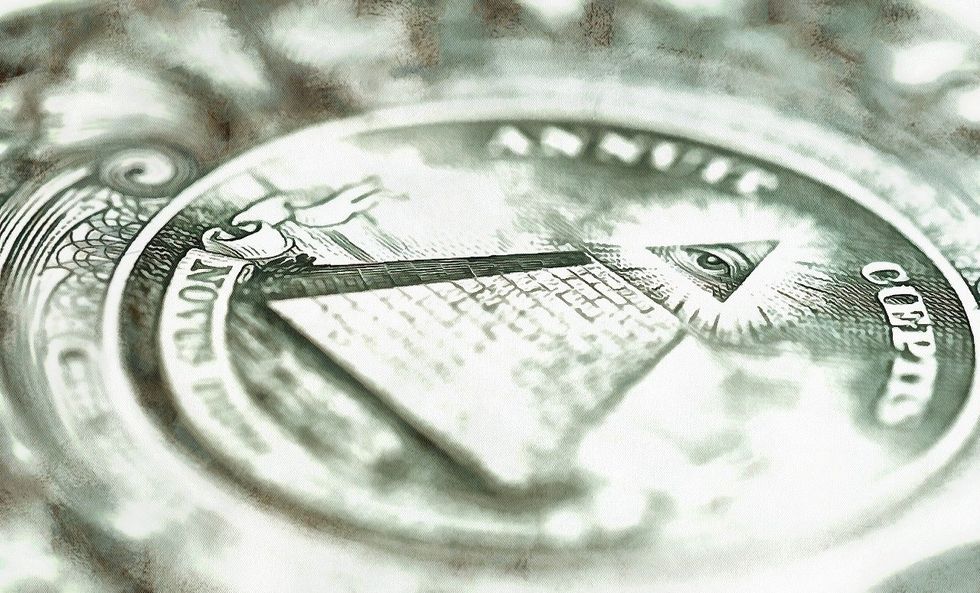Try telling someone you’re a conspiracy theorist, I dare you.
Seeing that you’re probably a rational human being who cares about their reputation and knows that conspiracy theorists are caricatured for being nuts, you probably won’t. Yet despite this, potentially because they provide a sense of community, conspiracy theories are becoming more popular. This happens in two ways.
First, a conspiracy theory allows people to find others who might share their beliefs, or at the very least want to know more about them. By being able to share their beliefs (or ridiculous hypotheses, whichever applies) people gain a sense of connection to their environment, even if the environment does not facilitate such discussion. Furthermore, most conspiracy theories are ideas precariously linked together. They are likely not believed by people the creator interacts with on a daily basis. By posting their theories on the internet, the creator is able to crowdsource evidence to support their ideas and combat this doubt, gaining friends in the process.
Second, simply by creating a conspiracy theory, the people involved form a bond. Unearthing and connecting evidence to support a seemingly ridiculous idea facilitates discussion, since many contributors may disagree about a certain part of a theory, and unity, since all parties are working together for one goal. By allowing people to grow closer and speak up, conspiracy theories function as a mouthpiece of the ridiculous. And as time goes on, these theories are increasingly integrated into mainstream culture. This allows people to express their beliefs about an event, no matter how odd they may be. In a culture obsessed with “speaking your mind,” it’s hardly surprising that conspiracy theories are as popular as they are.
While fostering community leads to some ludicrous theories (“the earth is stacked on top of turtles”), there are a few that don’t sound like total shams. As an amateur “conspiracy theorist” (ask my friends about my CollegeConfidential-like tendency to overanalyze communication between me and a crush), I’ll describe some I found interesting and rank their plausibility.
3. Soviet Radio Station
When the Cold War began, an eerie village on the outskirts of St. Petersburg started transmitting mysterious signals on the shortwave radio station MDZhB. While most of its broadcasts are static, a voice periodically reads out “random” words; at one point, the station played an English folk song and rattled off a list of numbers. These odd occurrences can be explained by the Dead Hand theory -- if Russia is hit by a nuclear weapon, the station will trigger an automatic blast. Mutually assured destruction at its finest.
If you fell during that leap of logic, let me clarify. The station’s system was created in the Soviet era. During this time, the Russians were also developing a system to scan airwaves to detect signs of nuclear fallout. Since radios rely on airwaves, MDZhB could be a bastardized version of the nuclear weapon detection system. Furthermore, Russia was under threat of attack during the Cold War and likely to react with hostility to any perceived danger. Blowing up the world seems extreme, but would you really expect anything else from the Motherland?
Nevertheless, this theory makes the least sense. The numbers and song suggest coded messages to spies. Then why use a station anyone can tune in to? And with the current animosity between the U.S. and Russia, you’d expect the station to have some output, but there’s been radio (static).
2. Avril Lavigne
This theory originated from @givenchyass on Twitter. Givenchyass claims that after Avril became famous, she “couldn’t handle the paparazzi” and befriended a lookalike, Melissa Vandella. After Avril’s grandfather died, Avril was so distraught she hung herself. Since Avril’s death occurred at the “peak of her career,” her record company trained Melissa to act and sing like Avril. Avril’s handwriting, jaw shape, and skin changed, which could be attributed to plastic surgery, but what’s more likely: Avril deciding to reinvent herself or killing herself and hiring a doppelganger? (Hint: the answer comes before the number three and after one.)
As any Avril fan would tell you, her music hasn’t been the same since 2012, when this allegedly occurred. If Avril was at the peak of her career, why would her record company want to change her music style when it was clearly working well? Why make her disappear for a year? It would make more financial sense to keep on the same path until Avril’s career was declining, then shake things up to increase interest.
When you take these factors into account, you can easily guess Avril Lavigne’s current location: six feet under an unmarked tombstone in the middle of Greenland.
1. FBI* Agent
You guys know the meme. And if you don’t, below is one of my favorite variants:
Wow, the government spies on us! Shocker.
Anyway, after the whole Snowden thing went down, people started realizing the government was onto us. While the NSA doesn’t confirm or deny anything (do they have something to hide???), we’re all too familiar with telling our friends we need to do something, say go to the gym more often, and then seeing Gold’s Gym and LA Fitness ads on Facebook. Even Mark Zuckerberg covers up his webcam and microphone with tape. Perhaps it’s a placebo effect: we automatically notice those ads more because we’re thinking about them. But honestly, I doubt it. Our online experiences are so specifically targeted to our preferences that there is no explanation other than government surveillance, at least that I can think of.
I think this theory is the closest to reality of the three. You probably don’t have an FBI agent assigned to you — there are too many people using the internet for that to work. They’re probably more focused on the people that actually pose a threat, like those who bite string cheese or eat onions like apples. Someone reading an article on conspiracy theories at 5 p.m. probably isn’t very productive in life, let alone in rebellion.
Nevertheless, if you’re hurt your agent is ignoring you, rest assured someone definitely is not. It’s well documented that tech companies monitor your (and 50,000 others’) every move online. Just call your creepy guardian angels bakers, because they’re about to be rollin’ in dough through targeted ads.
Is all of this rather stalker-y? Definitely. But I’m flattered by the attention, FBI agent. 😘
*As my friend tells me every time I reference this meme, it’s technically NSA agent. For the purposes of this article, ¯\_(ツ)_/¯








































